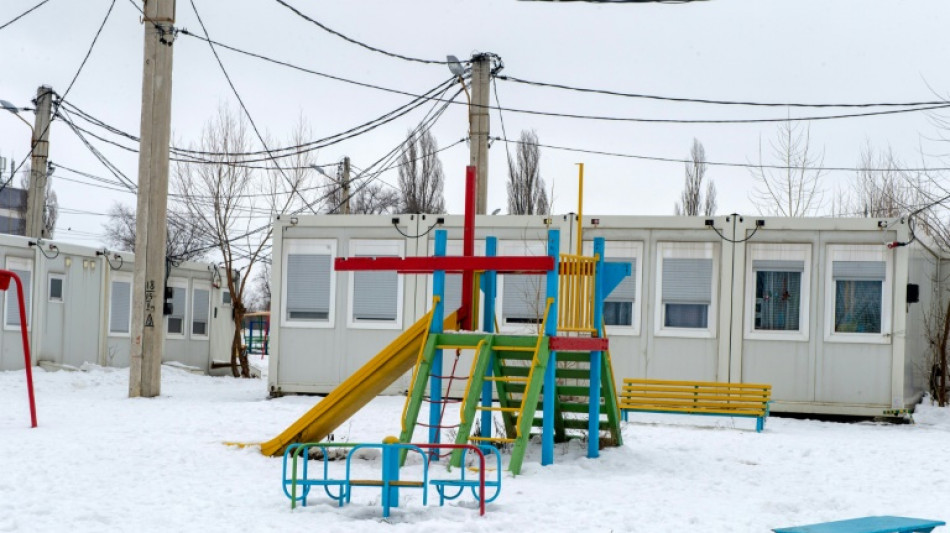
-
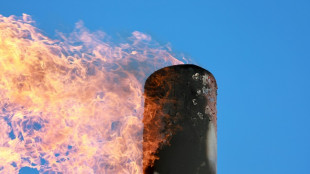 World energy methane emissions near record high in 2024: IEA
World energy methane emissions near record high in 2024: IEA
-
White smoke: signalling a new pope down the ages

-
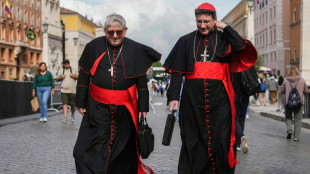 What's a cardinal? The 'princes' of the Church electing a new pope
What's a cardinal? The 'princes' of the Church electing a new pope
-
Papal conclave by the numbers

-
 The Vatican: a papal powerhouse, world's smallest state
The Vatican: a papal powerhouse, world's smallest state
-
Trump, Ukraine propel EU and UK towards defence pact

-
 Syrian leader to meet Macron in first European visit
Syrian leader to meet Macron in first European visit
-
History beckons as cardinals gather to elect new pope

-
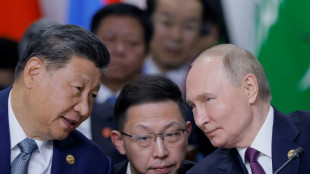 China's Xi aims to beef up 'no limits' Putin partnership
China's Xi aims to beef up 'no limits' Putin partnership
-
Hit by Trump cuts, journalists at Dubai-based US channel face uncertain future

-
 Roglic gunning for Giro as Pogacar's absence leaves door open
Roglic gunning for Giro as Pogacar's absence leaves door open
-
Trump's White House creates own media universe

-
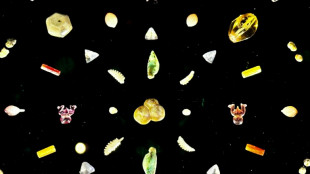 Sotheby's postpones historical gems auction after India backlash
Sotheby's postpones historical gems auction after India backlash
-
Taiwan bicycle makers in limbo as US tariff threat looms
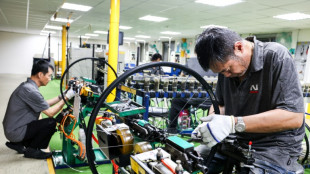
-
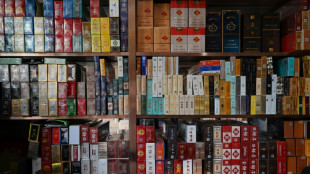 Tobacco town thrives as China struggles to kick the habit
Tobacco town thrives as China struggles to kick the habit
-
Venezuelan opposition figures 'rescued', now in US: Rubio
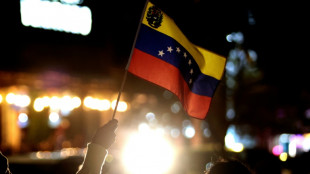
-
 China eases monetary policy to boost ailing economy
China eases monetary policy to boost ailing economy
-
Haliburton stunner sinks Cavs as Pacers take 2-0 series lead

-
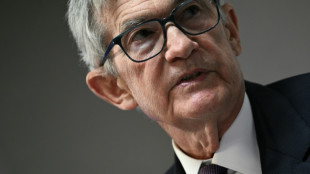 No rate cuts expected from US Fed facing 'unfavorable' conditions
No rate cuts expected from US Fed facing 'unfavorable' conditions
-
'No one is illegal': Mormon women stage patchwork protest in Washington
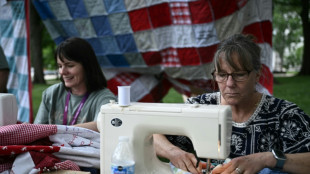
-
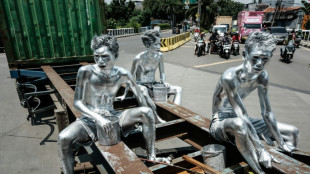 Indonesia's silvermen beg to make ends meet
Indonesia's silvermen beg to make ends meet
-
Toronto festival head says Trump tariffs would hurt film quality

-
 Trump talks tough on China, but early focus elsewhere
Trump talks tough on China, but early focus elsewhere
-
China vows to defend 'justice' in looming trade talks with US
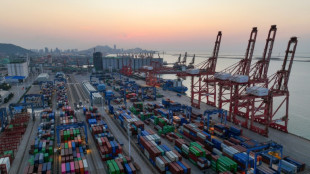
-
 Man Utd seek to finish off Athletic Bilbao in chase for Europa glory
Man Utd seek to finish off Athletic Bilbao in chase for Europa glory
-
AP to continue crediting 'Napalm Girl' photo to Nick Ut after probe
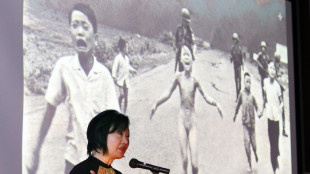
-
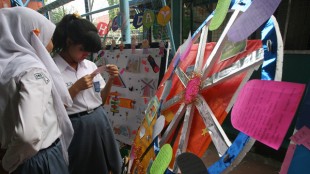 Tocvan Discovers Another Near Surface High-Grade Corridor at Gran Pilar Gold - Silver Project Drills 6.1 meters of 5.4 g/t Gold and 39 g/t Silver within 41.2 meters of 1.0 g/t Gold and 10 g/t Silver
Tocvan Discovers Another Near Surface High-Grade Corridor at Gran Pilar Gold - Silver Project Drills 6.1 meters of 5.4 g/t Gold and 39 g/t Silver within 41.2 meters of 1.0 g/t Gold and 10 g/t Silver
-
Evotec Receives $ 2.5 m Grant to Generate Next Generation Tuberculosis Treatments

-
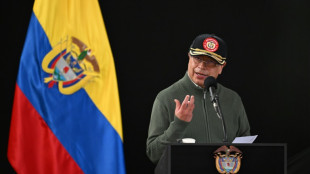 Colombia moves to join China's Belt and Road
Colombia moves to join China's Belt and Road
-
Martinez cried 'for two days' after nearly missing Barca triumph with injury

-
 US, Chinese officials to hold trade talks in Switzerland
US, Chinese officials to hold trade talks in Switzerland
-
Barca 'will be back' after painful Champions League exit to Inter, says Flick

-
 US jury awards WhatsApp $168 mn in NSO Group cyberespionage suit
US jury awards WhatsApp $168 mn in NSO Group cyberespionage suit
-
India launches strikes on Pakistan, Islamabad vows to 'settle the score'
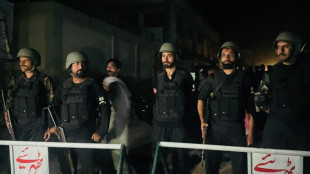
-
 Trump vows 'seamless' experience for 2026 World Cup fans
Trump vows 'seamless' experience for 2026 World Cup fans
-
Motown legend Smokey Robinson sued for sexual assault

-
 Trump hopes India-Pakistan clashes end 'very quickly'
Trump hopes India-Pakistan clashes end 'very quickly'
-
Frattesi shoots Inter into Champions League final after Barcelona epic

-
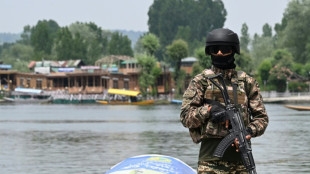 India launches strikes on Pakistan, Islamabad vows retaliation
India launches strikes on Pakistan, Islamabad vows retaliation
-
India launches strikes on Pakistan as Islamabad vows retaliation
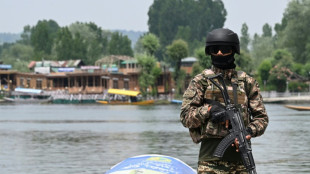
-
 Alpine shock as F1 team principal Oakes resigns
Alpine shock as F1 team principal Oakes resigns
-
Merz elected German chancellor after surprise setback
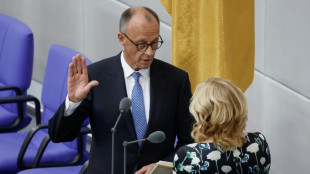
-
 Gujarat edge Mumbai in last-ball thriller to top IPL table
Gujarat edge Mumbai in last-ball thriller to top IPL table
-
Israel's plan for Gaza draws international criticism
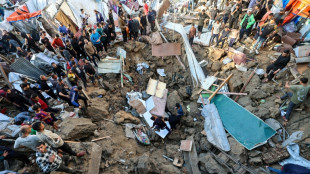
-
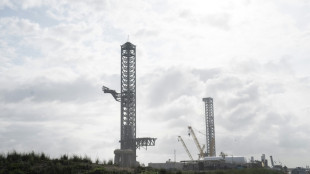 SpaceX gets US approval to launch more Starship flights from Texas
SpaceX gets US approval to launch more Starship flights from Texas
-
Alpine F1 team principal Oakes resigns

-
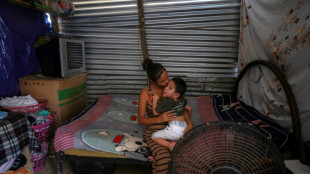 Colombia's desert north feels the pain of Trump's cuts
Colombia's desert north feels the pain of Trump's cuts
-
Arsenal determined 'to make a statement' against PSG in Champions League semi-final

-
 Top US court allows Trump's ban on trans troops to take effect
Top US court allows Trump's ban on trans troops to take effect
-
Whole lotta legal argument: Led Zeppelin guitarist Page sued


Ukraine displaced fear losing homes again
When she fled the conflict zone in east Ukraine, Lyudmyla Bobova never imagined she would celebrate her 59th birthday, almost eight years later, still living in emergency housing and under the threat of fresh bloodshed.
"We have got used to living here, we don't have a choice," she told AFP, standing in the doorway of the small room she shares with her disabled husband and elderly mother.
Now, as fears swirl that over 100,000 Russian troops camped along Ukraine's border could stage an invasion, there are fresh warnings that millions more people could join the hundreds of thousands like Bobova already forced from their homes.
It was the summer of 2014 when Bobova says she hastily packed two bags and left her native Lugansk region as it was engulfed by fighting between Ukrainian forces and Russian-backed separatists.
She headed to Ukraine's second city of Kharkiv, the nearest major hub controlled by the government, in the country's largely Russian-speaking industrial east.
By early 2015 she was living in pre-fabricated housing put up in a hurry for 500 vulnerable displaced with funding from the German government.
It was meant to be a temporary solution, but years later 175 people, including 70 children, are still living in the cluster of white cubes.
The makeshift housing is showing its age. The units are creaking, taps are broken and water heaters keep breaking down more frequently.
- 'Where would we go?' -
Bobova hopes against hope that the local authorities will find a more lasting fix for their accommodation woes.
She says she can't go back to her former home where her son is buried, as it lies across the volatile front line in separatist-held territory.
And as tensions have risen over a possible new Russian offensive, she says she doesn't want to be forced to leave Kharkiv, located precariously just 40 kilometres (25 miles) from the border.
"We had to live, so we fled, my mother was still walking with her cane but now it's difficult and my husband's health has deteriorated," she says.
"And where would we go?"
The Ukrainian government says that some 1.5 million displaced people have been registered around the country since Moscow seized Crimea and war broke out in the east in 2014. Around 135,000 of them are in Kharkiv.
The Norwegian Refugee Council has warned that up to two million people living along the 427-kilometre front line risk being forced from their homes if the conflict escalates.
Activist Yevgenia Levenshtein remembers how hundreds of displaced arrived at the Kharkiv train station back in 2014 "with nothing, families and children, in tears, from the areas being bombed".
Her association, Ukrainian Frontiers, provided emergency aid -- hygiene products, food, housing, work -- to the newcomers.
Given the recent warnings, the organisation has started to prepare again for a fresh wave of evacuations by repairing its minibuses, stocking up on fuel and ordering basic necessities.
- 'Shelter' -
Some who fled the violence have returned to their homes in the self-proclaimed separatist "republics" despite the low-level fighting rumbling on.
And those who remain behind in Kharkiv have strong pro-Ukrainian views.
"They chose Kharkiv for their new life, it's their shelter," says Levenshtein.
"They are ready, at least for now, to stay and defend it. But how? That's a mystery to me."
This is the case of Olga Todorova, who still has tears in her eyes when she tells of how she fled Lugansk by train to avoid separatist checkpoints on the roads.
In the room she rents in a Soviet-era building on the outskirts of Kharkiv, the 53-year-old journalist says she has already made up her mind what to do in case of a Russian attack.
"I know how scary it is, the Russian bombing and mortars or missiles, but we won't leave," she says.
Her partner Sergiy Kolesnyshenko, who was detained and beaten by the separatists, says he is ready to join the reserve forces in case of a Russian attack.
"How much time can we spend running away?" he asks "We can run away but what's the point?"
P.Stevenson--AMWN